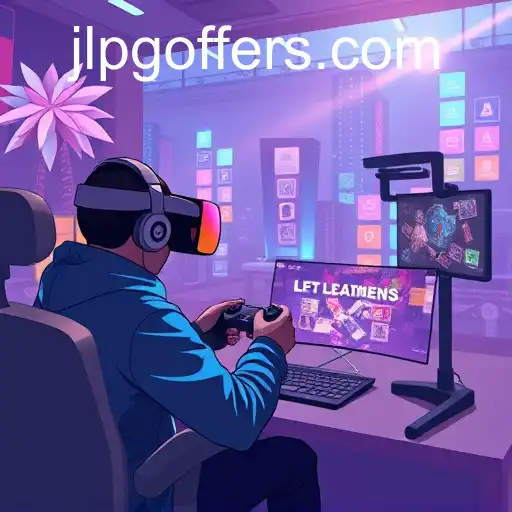
The Evolution and Impact of Multiplayer Games in the Digital Era

In the realm of digital entertainment, the multiplayer game category has emerged as a dominant force, reshaping how players interact and enjoy gaming experiences. With the keyword 'jlpg' prominently associated with multiplayer games on various platforms, it underscores the genre's popularity and the diversity of offerings available. Multiplayer games have transcended traditional boundaries, bringing together individuals from all around the world, creating communities, and fostering competitive and collaborative environments.
The rise of multiplayer games began with the advent of network connectivity in homes, allowing players to move beyond single-player experiences and invite friends or strangers into their digital worlds. Early examples such as Doom and Quake set the stage for network-based gameplay, while more recent titles like Fortnite, Call of Duty, and League of Legends have refined and expanded the formula, attracting millions of players globally. These games offer a range of modes, from cooperative play and team-based competition to massive open worlds that are explored with hundreds of other participants.
One of the key factors in the success of multiplayer games is their capacity to build vibrant player communities. Services like Xbox Live, PlayStation Network, and PC-focused platforms such as Steam and Epic Games Store offer players the ability to connect, engage, and compete against each other. Social features such as voice chat, friend lists, and matchmaking systems enhance the community experience, providing players with the social connectivity often craved in today's digital age.
Moreover, the esports industry has thrived on the back of multiplayer games, turning games like Dota 2, Counter-Strike: Global Offensive, and Overwatch into spectator sports. This competitive arena offers professional gamers a platform to showcase their skills and compete for substantial prizes, further elevating the multiplayer category within the digital landscape.
Multiplayer games also play a significant role in influencing industry trends. Whether through the introduction of new gameplay mechanics or innovative monetization models, they often serve as testing grounds for what might come next in the gaming industry. Additionally, the constant updates and development cycles seen in multiplayer games like Apex Legends or Rainbow Six Siege ensure that content remains fresh and players are frequently enticed back into the game.
As technology continues to advance, the future of multiplayer games looks increasingly promising. With virtual reality (VR) and augmented reality (AR) on the horizon, new ways of experiencing multiplayer interactions are being developed, promising more immersive and engaging experiences. Indeed, multiplayer games have fundamentally changed how we game, offering dynamic, inclusive, and ever-evolving digital arenas for players to explore.
Emerging Digital Frontiers: JLPG and Beyond
Exploring the evolution of JLPG in the dynamic landscape of digital gaming in 2025.
Evolution of Online Gaming Platforms
Exploring the dynamics and innovations in the online gaming world, focusing on English websites and current industry trends.
The Evolution of Online Gaming in the 2020s
Exploring the growth of online gaming platforms and trends in the industry during the 2020s.
 Skip to content
Skip to content





